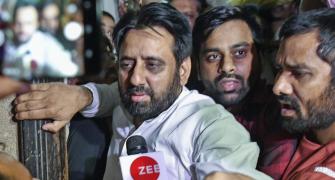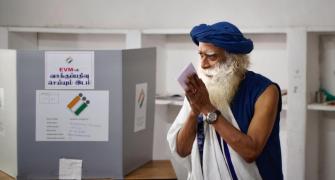Recent data on the Food Safety and Standards Authority of India show its commendable performance. But there is an urgent need to address certain issues related to the way it functions and its infrastructure, says A K Bhattacharya.

The recent controversy over reports of higher than permissible levels of lead and monosodium glutamate in some brands of instant noodles has brought into sharp focus the functioning of the government body that regulates food safety and standards in the country. How active or effective the Food Safety and Standards Authority of India (FSSAI) has been since its inception in 2011?
Remember that the government notified the Food Safety and Standards Act in 2006, but it took five more years before the regulatory body could be formed. That itself shows how tardy the government’s response has been to the need for setting up a regulatory body mandated by law.
Data on FSSAI’s performance in the last four years, however, present a slightly different story. The number of food samples examined by FSSAI has been rising steadily — from 64,593 in 2011-12 to 69,949 in 2012-13 and further up to 72,200 in 2013-14. Maintaining the same trend, the number of samples examined in the first half of 2014-15 rose to 49,290. For an organisation that was set up in 2011, it is indeed commendable that the newly set up body could crack the whip so soon with the examination of such large numbers of food samples.
However, a disconcerting development, which has gone virtually unnoticed, is that the rate of rejection of the samples has also been rising. In the first year of its operation in 2011-12, a little over 12 per cent of the samples examined were rejected. The rejection rate rose close to 15 per cent in 2012-13 and further to 19 per cent in 2013-14. The number of cases in which FSSAI launched prosecution has also gone up accordingly, confirming an overall impression that the newly set up regulatory authority got active and effective within a relatively short period after its formation.
The good news, however, ends here. The sobering fact is that such large numbers of samples failing to pass the mandatory FSSAI test has not yet prompted an adequate policy response to meet the challenges of ensuring food safety and standards. For instance, the infrastructure certified to examine the food samples has remained poor and inadequate. It appears there are only 82 agencies that have been cleared by FSSAI to be eligible for conducting tests on food samples across the country.
Most of these agencies are located in the northern, western and southern states. The northern states have 28 agencies, followed by western states with 25 and southern states with 24 agencies. Only five such agencies are there in the whole of eastern India and all of them are located in West Bengal. What happens to the testing requirements for food samples originating from other states in eastern India? There is a clear need for strengthening this infrastructure to improve FSSAI’s functioning and effectiveness as a regulator.
There are also issues with regard to the way FSSAI has been structured. Its chairperson is the secretary in the Ministry Of Health And Family Welfare. Its chief executive officer also happens to be a nominee of the government — an officer belonging to the Indian Administrative Service (IAS).
There are at least half a dozen more IAS officials, who are joint secretaries in different central ministries and are part of the board that oversees the functioning of FSSAI. Yes, the authority has representatives from the industry, food retailers, food technologists, scientists and farmers’ organisations, but the predominance of the IAS officers is an issue that needs to be reviewed.
The current situation makes the top rung of the authority look like an extension of the government. It is important that FSSAI must be staffed in a manner that it can act as independently as possible as a regulator.
While the government should be framing the policy, the regulator should not only act independently but it should also be seen as doing so in the interest of consumers and the industry. Manning it with such a large number of IAS officers is not the best way to reach that goal.








